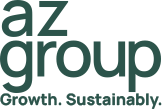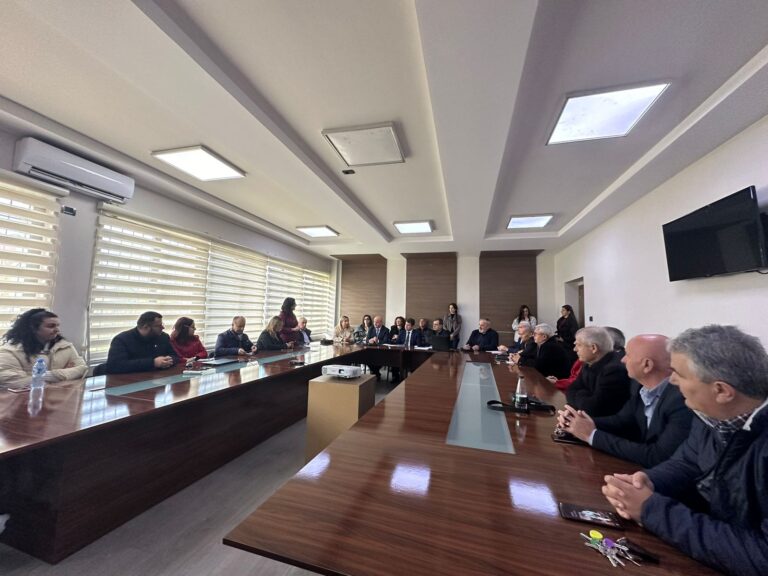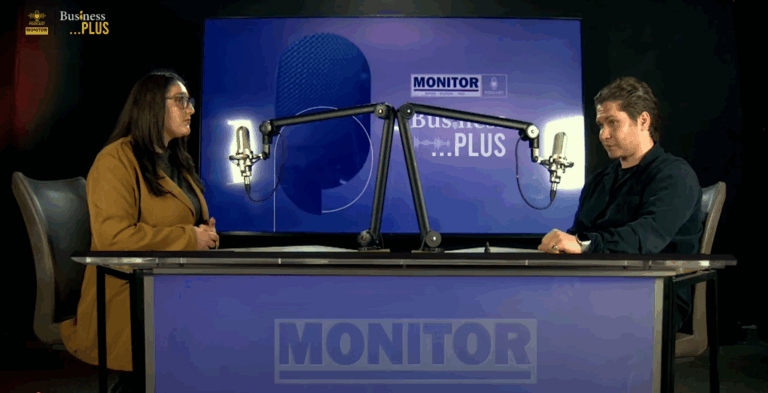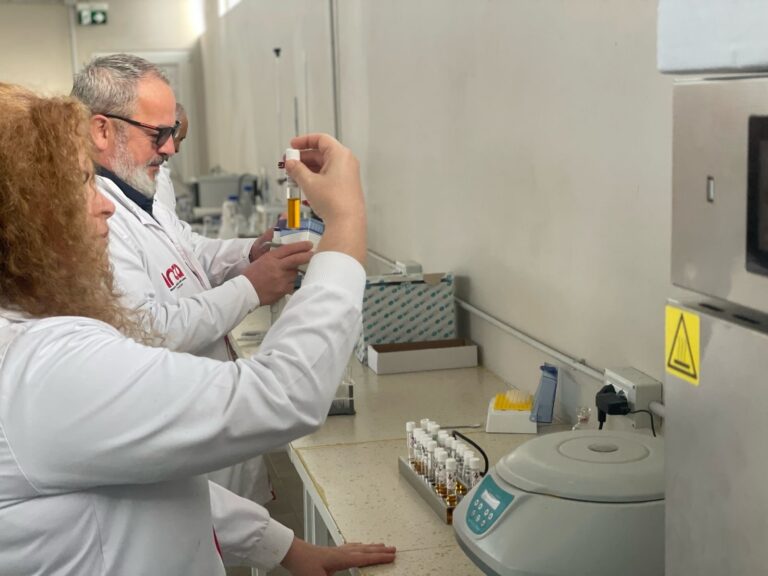AZ Group companies shifted their business model from a linear to a circular one, thus transforming to the only pure such business model in Albania. Transitioning from a linear to a circular business model required the company to spend significant financial resources in new technology, including casing cleaning machines, a new pet chews production facility, and the construction of the Western Balkans’ sole rendering factory of such magnitude. Furthermore, in order to upgrade and assure the quality of the raw materials, the firm invests in new technologies and technical upgrades in their suppliers and logistics network on a regular basis.
Problem
There are more than 80 red-meat slaughterhouses in Albania, slaughtering more than 5000 animals/day, and it is estimated that depending on the animal, only 70-75% of the weight is meat, with the rest being animal by-products or organic waste. Moreover, there are more than 50 meat processing companies which also generate industrial waste totaling between 5-10% of their total daily production. Until 2015, the majority of this meat slaughtering and processing industry operators disposed of their by-products as waste, through landfilling or worse, burying it or dumping it into rivers. These massive amounts of animal waste are considered a major concern, as they harm the soil, the underground water systems, and release a large amount of methane and greenhouse gases in the atmosphere.
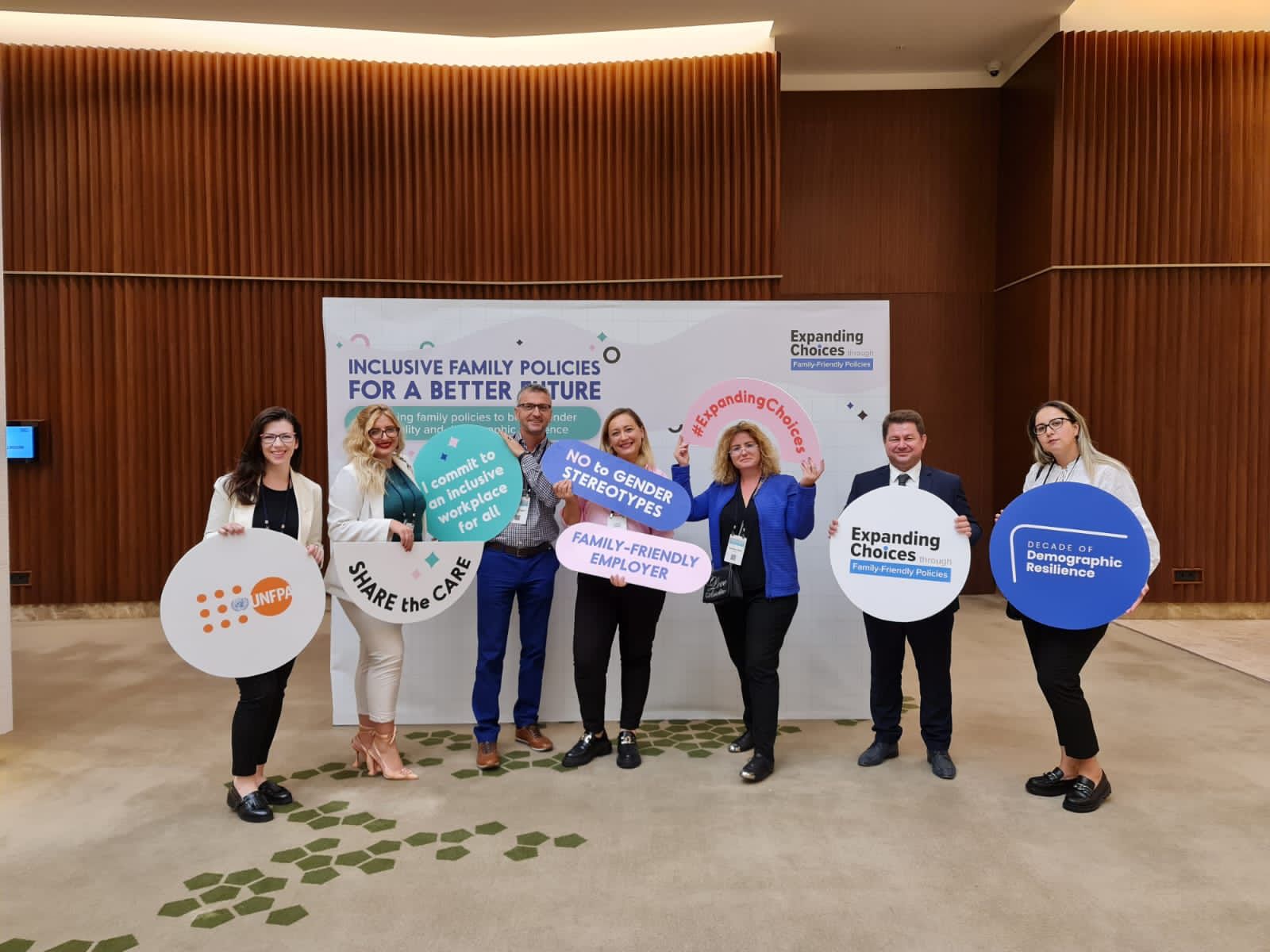
Solution
The first and to this day the only company that started to address these concerns was I.N.C.A. shpk. The only natural casing manufacturing company in Albania, I.N.C.A. shpk started in 2015 by collecting and process the natural casings from Albanian slaughterhouses, and then in 2018, the owners founded a new company – PetEat shpk, which dealt in the production of natural dog chews derived by animal-products. In 2020 a third company – AZ Rendering – was built, as a necessity to process the organic waste from I.N.C.A. and PetEat, as well as collect and process all of the industrial waste that could not be processed by the first two companies. Along with expanding and rebranding the 3 companies under AZ Group, they shifted their business model from a linear to a circular one, thus transforming to the only pure such business model in Albania. Transiting from a linear to a circular business model, required the company to invest large amounts of financial resources into new technologies: investments in casing cleaning machineries, new pets’ chews production facility and investing in building the only rendering plant of its scale in the Western Balkan region. Furthermore, the company regularly invests in new technological and technical improvements in their suppliers and logistics network in order to upgrade and ensure the quality of the raw materials. This exponentially increased the company expenses. While attempting to become circular, the company faced significant supply chain issues. First, there was a lack of investment and infrastructure in slaughterhouses, resulting in raw material quality that fell short of requirements for being exported to Europe or other foreign markets. Second, there was a significant level of informality in this part of the value chain. It was estimated that more than 40% of animals were butchered outside of slaughterhouses, which in turn made monitoring by government authorities quite difficult. Third, there is a heavily underdeveloped law infrastructure regarding waste management, and especially lack of law compliance by the waste generation companies, accompanied by a lack of law enforcement by the national Albanian authorities. Despite possessing the capacity to process 100% of the animal by-products and waste generated in Albania, AZ Group companies collect by-products and waste from only 45 companies (out of more than 80), or around only 65% of the total organic animal waste being generated in Albania.

Outcome
This new circular business model has three distinct positive effects that might be elaborated. First and foremost, it boosted the Albanian economy. The firm built four additional processing units in five years, resulting in the creation of more than 60 new jobs. The agriculture industry’s expenses were reduced as a result of increased technical investments across the whole value chain. Furthermore, the size of exports expanded as a result of the new product development, improving the trade balance. Finally, as the new businesses developed, the company grew and began to pay more taxes. Second, this new circular business model was environmentally friendly and not just carbon neutral, but carbon positive. Animal waste was no longer buried underground, or thrown in landfills and river beds. The more than 5000 tons of raw material processed by AZ Group amounts to more than 17500 metric tons of captured CO2 which was not allowed to go in the atmosphere, and is around the same amount of CO2 that 2000 hectares of forest are able to capture. Thirdly, this case serves as a model of education for the society. In Albania, the transition toward a circular economy requires a holistic approach including awareness campaigns, and this business case serves as a best practice for other potential entrepreneurs to invest in new industries and design their products to be circular from the very start.
